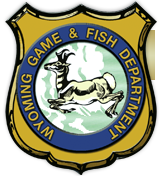
By Staff,3-26,2015
State officials received confirmation on Wednesday that the highly pathogenic H5N2 avian influenza strain was identified in a Canada goose found near Cheyenne, Wyoming. This is the first detection of highly pathogenic avian influenza (HPAI) in Wyoming. The Wyoming Game and Fish Department and the State Veterinarian ask that people continue to be on the lookout for birds that may exhibit symptoms of the disease and advise that those handling birds or who own birds should exercise caution.
Avian influenza (commonly called “bird flu”) is a viral infection found in a wide variety of domestic and wild birds. The highly pathogenic forms of the disease (HPAI) are highly contagious among birds and can result in high mortality rates in affected domestic flocks. Clinical signs in affected birds may include edema or swelling of the head, nasal discharge, neurologic signs (circling, incoordination), depression or sudden death.
HPAI has been confirmed in eleven states, including Wyoming, in wild and/or domestic birds. The disease has not been implicated in any human infection in the US, to date. Officials say there is no immediate human health concern due to the virus as long as sanitation precautions are taken. Proper handling and cooking includes routine precautions like wearing latex or rubber gloves when cleaning birds, washing hands with soapy water after cleaning, cleaning and disinfecting equipment and surfaces that come in contact with wild birds (for example, washing with soapy water and disinfecting with a 10 percent chlorine bleach solution), and cooking wild birds thoroughly before eating the meat. The US Department of Agriculture (USDA) states that birds are safe to eat as long as they are properly handled and cooked to a temperature of 165 degrees.
Affected birds have now been found in the Pacific, Central, and Mississippi flyways where wild bird migrations occur. Most of Wyoming is located in the Central flyway, with a small portion in the Pacific Flyway west of the continental divide, Domestic flocks associated with this outbreak have reported high mortality with very few noticeable clinical signs prior to death.
“Over the past several months highly pathogenic strains of the Avian Influenza virus have been found in wild birds and domestic poultry in several new states including Wyoming,” said State Veterinarian, Jim Logan. “We believe it is best if domestic poultry owners – commercial and backyard flocks – take precautions to prevent their birds from having any contact or exposure with wild birds. Avian influenza can be transmitted to domestic bird flocks from infected wild birds. We also advise domestic poultry owners to institute good biosecurity practices to prevent bringing pathogens into their facilities.” These measures include: wearing clean clothes, washing hands and disinfecting footwear before entering any bird area. Additional biosecurity practices include: disinfecting equipment and tools, cleaning cages regularly, changing food and water daily are recommended to limit disease transmission within flocks. Information on biosecurity for backyard flocks can be found at http://healthybirds.aphis.usda.gov.
While most avian influenza viruses rarely cause clinical signs in wild waterfowl, it appears that raptors and wild gallinaceous birds (pheasants, quail, turkey, grouse) may be more susceptible to disease from HPAI. Game and Fish recommends that falconers avoid hunting avian species, particularly waterfowl, during this HPAI outbreak. Game bird farmers are advised to follow the same precautions as outlined for domestic poultry.
Highly pathogenic avian influenza is a foreign animal disease and is a reportable disease in Wyoming. Owners of domestic poultry and veterinarians are encouraged to report signs of sick or dead birds to the State Veterinarian’s office at (307) 857 4140 or the USDA’s APHIS Wyoming office at (307) 432 7960 for diagnostic and epidemiologic evaluation. If individuals find dead wild birds in the field, they can call their local game warden, wildlife biologist or Game and Fish office. Owners of private game bird farms and falconers should contact Game and Fish personnel with any concerns.



